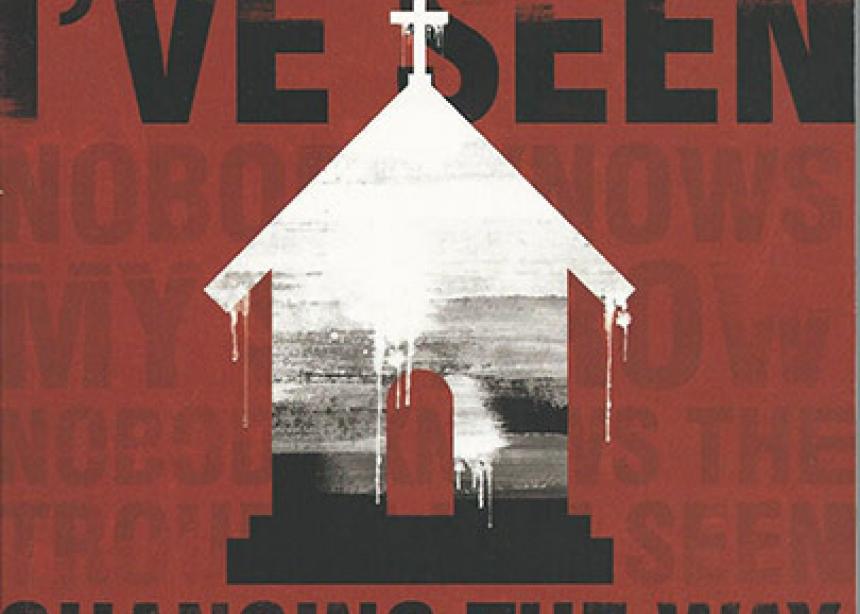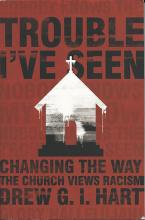Nobody knows the trouble I’ve seen / Nobody knows my sorrow / Nobody knows the trouble I’ve seen / Nobody knows but Jesus
By entitling his book with the words of the African-American spiritual, one known by whites through popularization in modern entertainment, Drew Hart puts his thesis front and centre.
Until whites, especially the white church in the United States and the West in general, come to see the racialized society in which we all live from the perspective of those under the system—blacks, Indigenous peoples and other-gendered people—the only one who understands is Jesus. And, according to Hart, Jesus understands, since he was from under the system in imperial-oppressed Palestine and he made a habit of associating with those from the under-classes religiously (Samaritans and lepers), ethically (tax collectors, prostitutes and drunkards), politically (Canaanites or Zealots), sexually (adulteresses), culturally/racially (Galileans), and spiritually/mentally (demonically possessed).
As an African-American Christian, Hart, an assistant professor of theology at Messiah College, a private Christian college founded in 1909 by the Brethren in Christ Church, in Mechanicsburg, Pa., has personally experienced the racialized society and the fact that the over-class of whites do not understand, nor have to understand, his underclass society and oppression.
He turns to an African proverb to help understanding: “Until the story [of the hunt] is told by the lion, the tale of the hunt will always glorify the hunter.” But Hart does not count on whites inside or outside the church believing him. He writes that whites “take for granted their own ideas and perspectives because they are backed by a majority. From there, they lose sight of the fact that their particular view is just as socialized and contextualized as everyone else’s.”
He draws on studies, others’ accounts, statistics and examples to drive home his repeated point: “My Christian formation has prepared me to see society differently from how the dominant group frequently views it. Those of us who must navigate life on the underside of racial hierarchy require transformed minds and perceptions of society, because each of our lives depends on it. Christians who live in denial of such experiences don’t know that their own transformation is intimately tied to coming alongside and learning from those at the bottom rung of our societal ladder. This is where Jesus has always chosen to be uniquely present. Jesus’ delivering presence has always been especially available outside of the camp, where the crucifixion takes place.”
But Hart does not see white supremacy only in relation to anti-black sentiment. In a recent presentation in Kitchener, Ont., he aligned “Indigenous erasure” with systematic anti-black systems in the U.S. and Canada. He said his checklist about blacks’ lack of economic opportunity, high incarceration rates, distrust by whites, negative stereotypes of blacks held by both whites and blacks, inequalities in education funding and access to resources, and police brutality, sounds exactly like the situation of Indigenous people in Canada.
In his last chapter, Hart asks, “Where do we go from here?” He suggests “seven Jesus-shaped practices for the antiracist church:
- Share life together.
- Practise solidarity in the struggle.
- See the world from below—joining Jesus in the company of the oppressed.
- Subvert racial hierarchy in the church.
- Soak in Scripture and the Spirit for renewed social imagination;
- Seek first the kingdom of God.
- Engage in continuing self-examination, reserving our sharpest criticism for ourselves.
The book would be more useful with an index and questions for discussion associated with each chapter.
Drew Hart was the guest speaker at Rockway Mennonite Collegiate’s Spiritual Emphasis Week. See ‘Anti-racism is a ‘lifelong pursuit’.
See more at Focus on Books & Resources.



Add new comment
Canadian Mennonite invites comments and encourages constructive discussion about our content. Actual full names (first and last) are required. Comments are moderated and may be edited. They will not appear online until approved and will be posted during business hours. Some comments may be reproduced in print.